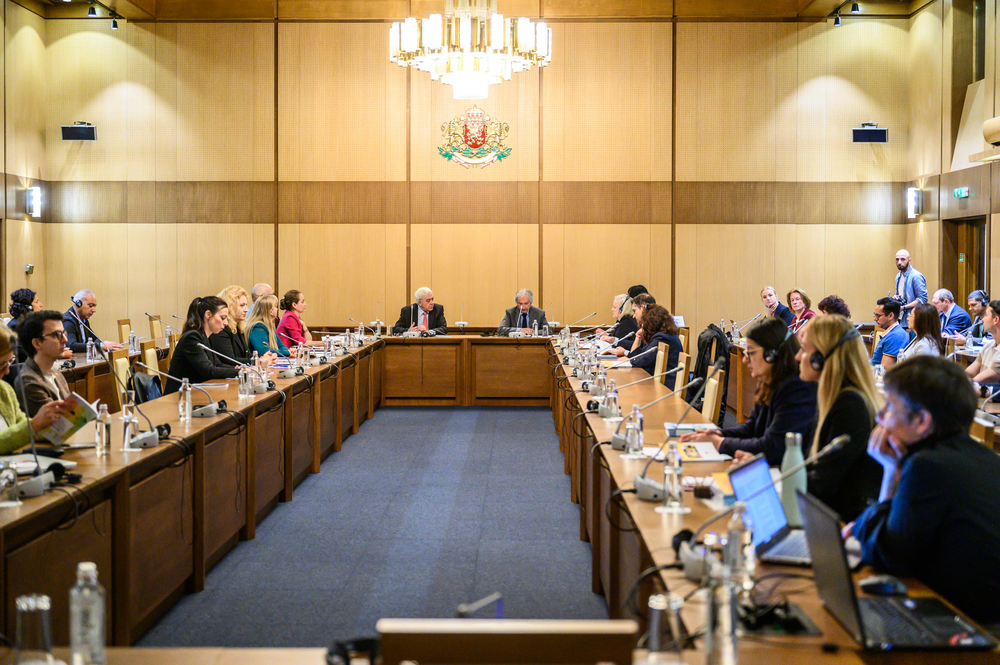site.btaEqual Together Project: Hate Speech Level in Bulgaria Persistently High over Decade


The level of hate speech in Bulgaria has been persistently high over the last ten years, said Boyan Zahariev of the Open Society Institute, member of the Equal Together project's Monitoring Committee. Zahariev presented a new survey of public attitudes for the period 2013 - 2023 during the project’s final conference held Friday at Boyana Residence.
The project is aimed at strengthening civil society organizations of vulnerable communities in Bulgaria to counter discrimination, intolerance, segregation, hate speech and bias crimes.
The topic of prejudice and hate speech was the main focus of the conference, which was attended by representatives of vulnerable groups in Bulgaria, including Roma, LGBTI, migrants, as well as public authorities and human rights institutions.
Over two years, the project organizations have seriously researched on the situation in different regions of this country, on Bulgarian legislation and on international protection standards. A special overview traced trends from the beginning of the democratic changes until now. The result shows that at different times different vulnerable groups are targeted by hate speech attacks. Bulgarians of Turkish and Roma origin, refugees and migrants and, in recent years, LGBTI people have all been targeted.
Hatred with deep roots in attitudes and new civil movements
In Bulgarian society, the level of discrimination and hate speech does not follow a particular dynamic or direction, but rather has high sustained levels over a long period. In 2013, when the Open Society survey began, 46% said they had encountered hate speech. In 2023, 43% responded likewise. In 2016, when major political events took place, hatred of LGBTI people has increased, and then there was the powerful campaign against the Istanbul Convention (a human rights treaty of the Council of Europe opposing violence against women and domestic violence) and related legislation. Then strong civil movements were formed to promote such attitudes.
The reasons
The phenomenon is not only related to political processes and parties. It is about new, authentic civil movements that profess conservative values and hatred. This phenomenon can also be observed at European level. This calls into question whether the legal framework of human rights has developed into deeply held value convictions, or whether the concept of human rights can disappear very quickly under certain circumstances, for example, regime change.
Advocate Denitsa Lyubenova from the youth LGBTI organization Action stressed that in recent years "human rights has become a bad word", human rights organizations are systematically marginalized.
Simona Veleva from the Council of Electronic Media said that most hate speech takes place during election campaigns, adding that in many of these cases the media themselves do not react.
The European Court of Justice combating prejudice
In some respects, the Bulgarian state has taken measures to combat prejudice and hate speech, but this has happened after the European Court of Human Rights in Strasbourg ruled against it.
Krasimir Kanev, Director of the Monitoring Programme at the Bulgarian Helsinki Committee (BHC), said that there is a long way to go on legislative changes and taking effective measures to combat hate speech.
A judge at the European Court of Human Rights, Yonko Grozev, pointed to empowering minorities as a workable mechanism to tackle the problem.
Hate and discrimination database
In two years, around 140 cases of hate and discrimination have been reported to the Equal.bg platform and will be added to the Organisation for Security and Co-operation in Europe's Office for Democratic Institutions and Human Rights database on hate crimes. The submissions are included in the following thematic analyses: LGBT - the new media target instead of Roma?, White Paper: measures with recommendations to combat prejudice crimes and hate speech, Prejudice crimes and hate speech in Bulgaria.
Anastasia Baskina of the Office of the United Nations High Commissioner for Human Rights highlighted racism, xenophobia and gender discrimination as manifestations of human rights violations.
The Equal Together project is co-funded by the EU under the Citizens, Equality, Rights and Values Programme. It is implemented by partner human rights organizations from Bulgaria and Sweden with BHC as lead partner.
/MT/
news.modal.header
news.modal.text